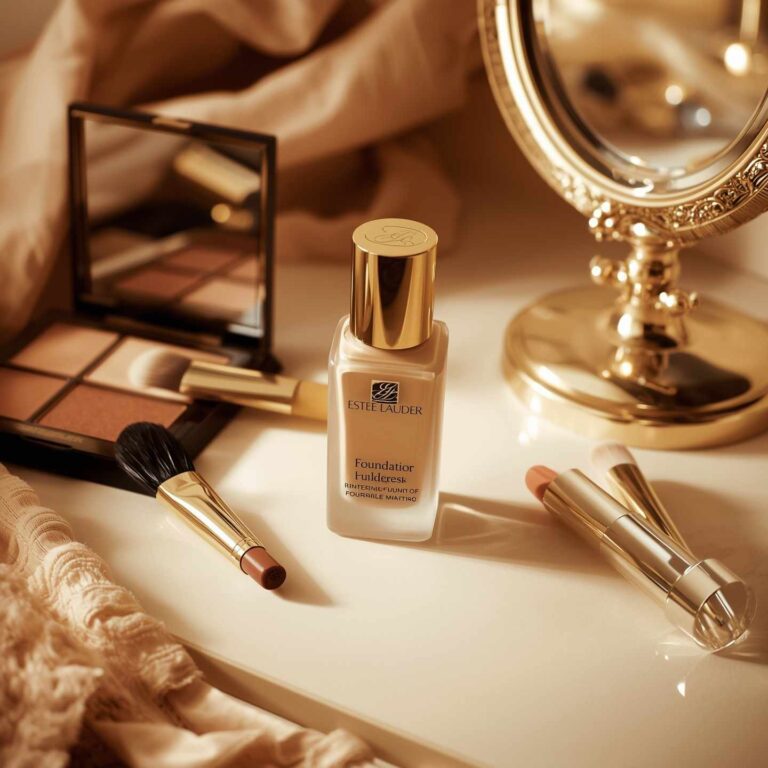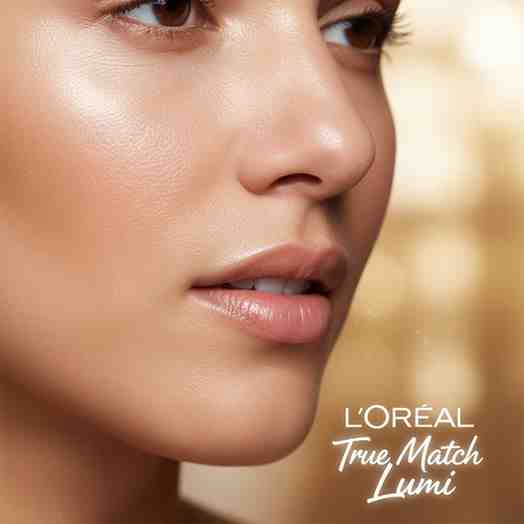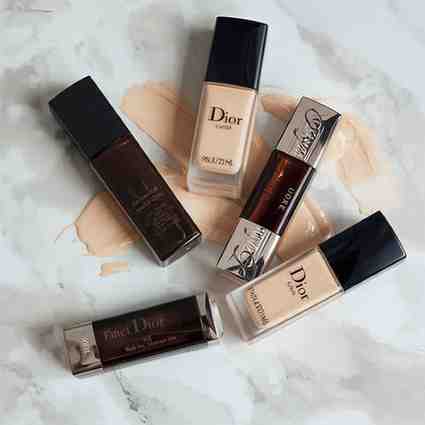Best Foundation for Mature Skin | Top Picks & Pro Tips
Best Foundation for Mature Skin

Introduction
Aging isn’t something to hide — it’s something to honor. Every fine line, every smile crease, every change in your skin tells the story of a life fully lived. But let’s be honest — as your skin matures, your makeup routine needs to evolve too. What worked at 25 won’t always suit you at 45, 55, or 65.If you’ve found yourself frustrated with foundations that settle into lines, cling to dry spots, or leave your complexion looking flat, you’re not alone. The truth is, finding the best foundation for mature skin requires more than just following the latest trends. It means choosing formulas designed to nourish, smooth, and enhance skin that’s changed with time. Read alsohttps://thebeautyduty.com/2025/08/05/makeup-vanity-ideas-styles-organization/
In this guide, we’re cutting through the noise and giving you precisely what you need: expert advice, the right ingredients, and the top-performing products that actually work for aging skin
Why Mature Skin Needs a Different Kind of Foundation
As the years go by, skin undergoes noticeable changes. It may become thinner, less firm, and more prone to dryness or uneven texture. Collagen production slows down, elasticity decreases, and moisture levels drop — all of which affect how your foundation looks and wears throughout the day.
That’s why the best foundation for mature skin isn’t just about coverage anymore — it’s about hydration, comfort, and a finish that enhances your natural radiance without emphasizing imperfections. Think of it as skincare with tint — a product that flatters your skin’s current needs, not its past version.
What Makes a Foundation Truly Suitable for Mature Skin?

Before diving into the best product recommendations, it’s essential to understand what sets a mature-skin-friendly foundation apart from the rest. Too many people waste money chasing hyped-up launches, only to realize that the formula works better for younger, oilier skin types. Mature skin needs targeted care, and your foundation should reflect that.
Here’s what you should look for:
1. Hydrating, Moisture-Rich Formulas
As skin matures, it loses natural oils and water content, making it more prone to dryness. A hydrating foundation helps plump the skin, smooth out texture, and prevent your makeup from clinging to dry patches.
Key ingredients to look for:
– Hyaluronic Acid
– Glycerin
– Squalane
– Niacinamide
Foundations with these ingredients act as a moisture boost, giving skin a healthier, more youthful glow.
2. Lightweight, Breathable Coverage
Thick foundations tend to sink into fine lines, drawing attention to wrinkles instead of hiding them. Instead, opt for light to medium coverage that can be built up only where needed. Lightweight foundations let your real skin shine through, offering a smoother and more refined finish without looking cakey.
Bonus tip:
Use a damp beauty sponge or clean fingertips to press the product in — it’ll melt beautifully without tugging on delicate areas.
3. Radiant or Satin Finish
Mature skin tends to appear dull due to slower cell turnover. That’s why a luminous finish is ideal — it reflects light, giving a soft-focus effect that makes fine lines less noticeable and your complexion more vibrant.
Avoid ultra-matte or powder-heavy formulas unless you’re using them only in the T-zone.
4. Anti-Aging Ingredients That Work While You Wear

Many of today’s top foundations are hybrid products — combining skincare and makeup into one. Choosing formulas enriched with peptides, antioxidants, or vitamin C can help boost long-term skin health.
A few top performers include:
– Peptides (for firming)
– Vitamin C (for brightening)
– SPF (for daily sun protection)
– Ceramides (for skin barrier repair)
5. No Settling Into Fine Lines
One of the most common foundation failures? Creasing and cracking. Choose flexible, smoothing foundations that stay in place without drying out or breaking apart as your face moves.
Foundations designed for mature skin often include silicone blends or elastic polymers that flex with your expressions and hold up through the day.
6. Built-In Sun Protection
Mature skin is susceptible to UV damage, which can worsen pigmentation, dryness, and uneven tone. While sunscreen should still be applied separately, a foundation with added SPF gives your skin that extra defense during the day.
Look for:
– Broad-spectrum SPF 20 or higher
– If your skin is easily irritated, go for mineral SPF options like titanium dioxide or zinc oxide for a gentler layer of sun protection.
7. True-to-Skin Shades With Balanced Undertones
Mature skin can lose its natural brightness over time, often appearing dull or uneven in tone. Choose shades with neutral to warm undertones to revive dullness and avoid foundations that make you look ashy or washed out. Cosmetic lines with diverse and well-balanced shade options are more likely to match mature skin accurately and enhance natural warmth.
8. Blurring and Smoothing Effects
Modern formulas often feature blurring pigments that reduce the visibility of texture, pores, and wrinkles, creating a soft-focus, filtered look. For a naturally radiant and awake look, this skin-smoothing effect is essential.
Smart Buy Guide: Choosing the Right Foundation for Aging Skin

Finding the perfect foundation for mature skin means selecting one that adapts to its needs instead of highlighting imperfections. Here’s what you really need to consider before making your next purchase:
1. Hydration Comes First
Aging skin often struggles to stay hydrated, which can lead to dryness and loss of elasticity. This usually leads to dryness, flakiness, and tightness. That’s why hydrating foundations are essential. Look for ingredients like hyaluronic acid, squalane, and glycerin — they lock in moisture and help the skin appear plumper, smoother, and healthier all day long. Buy nowhttps://amzn.to/45njPbn
2. Lightweight, Skin-Like Texture
Forget cakey coverage — mature skin looks best with a foundation that feels feather-light and breathable. A thin, buildable formula blends seamlessly without settling into expression lines, and allows your natural skin to shine through with just the right amount of enhancement. Buy now https://amzn.to/4mBmKnU
3. Radiant or Satin Finish
Dewy and satin finishes reflect light and give your face a youthful, fresh glow. These finishes also blur imperfections naturally. Matte foundations, on the other hand, tend to exaggerate dryness and texture, which is why they’re usually less flattering on mature skin. Buy now https://amzn.to/3H43Ir7
4. Skincare + Makeup = Win-Win

Modern foundations often double as skincare, and that’s precisely what mature skin needs. Go for formulas infused with peptides, niacinamide, antioxidants, or SPF to get skin benefits while you wear your makeup. These ingredients support collagen, reduce inflammation, and protect against environmental stressors. Buy now https://amzn.to/46RkVP3
5. No Settling into Lines
It can be incredibly frustrating when foundation sinks into expression lines, making them appear more prominent.. The best foundation for mature skin should move with your face and maintain a smooth appearance throughout the day. Choose flexible formulas that don’t crack, dry out, or separate. Buy nowhttps://amzn.to/455nKdU
6. Built-In Sun Protection
Mature skin is more vulnerable to sun damage, which can worsen age spots, pigmentation, and fine lines. While sunscreen is always essential, using a foundation with added SPF 20 or higher provides a valuable layer of defense in your daily routine. Buy now https://amzn.to/4mylzpc
7. The Right Shade & Undertone
As skin tone changes with age — sometimes becoming more uneven or dull — finding the correct shade becomes more critical than ever. Neutral or warm undertones often brighten the complexion and restore natural warmth, while cool tones can sometimes make the skin look gray or flat. Buy nowhttps://amzn.to/4m8xvy5
8. Blurring & Smoothing Technology
Newer foundation formulas often include soft-focus pigments or light-diffusing ingredients. These help create a natural ‘filter’ effect by minimizing the appearance of pores, texture, and fine lines. The result? A refined, radiant finish that looks polished — but never overdone. Buy nowhttps://amzn.to/4ohkUtM
Hydration Is Non-Negotiable: Why Moisture-Rich Foundations Work Best for Mature Skin

As we age, our skin naturally produces less oil and loses its ability to retain moisture effectively. This dryness can make fine lines and wrinkles more visible, especially if you’re using a matte or drying formula. That’s why the best foundation for mature skin should always include hydrating ingredients like hyaluronic acid, squalane, or glycerin. These ingredients plump up the skin, smooth the texture, and give your complexion a youthful, dewy finish, without making it greasy.
Look for terms like “moisture-boosting,” “hydrating,” or “serum-infused” on the label. Cream and liquid foundations usually offer better hydration compared to powders, which can cling to dry patches and make skin look older than it is.
Pro Tip: Always prep with a hydrating primer or skincare before applying foundation to lock in moisture and improve wear time.
Application Techniques That Make a Difference: Tools, Tips & Tricks
Even if you have the perfect product, how you apply it can make or break your look. When it comes to mature skin, it’s essential to highlight natural beauty instead of hiding it beneath heavy layers. Heavy layers can settle into lines and emphasize age, so a light touch goes a long way.
Best Practices:
- Dab your foundation in with a slightly moist beauty sponge for a seamless, skin-like finish that doesn’t look patchy. This gives a seamless, natural finish and avoids dragging or tugging.
- Avoid buffing brushes that can cause micro-exfoliation and irritation on sensitive, thinning skin.
- Start in the center of the face (where redness and discoloration are more common) and blend outward.
- Start with a thin layer of foundation and add more only in areas that need extra coverage — this keeps your base fresh and natural.
- Set only where needed with a finely milled translucent powder — usually around the nose and chin — to prevent excess shine without drying the skin.
Conclusion:
https://thebeautyduty.com/2025/07/31/long-hairstyles-for-men/Finding the best foundation for mature skin isn’t about chasing trends — it’s about choosing what truly works for your skin’s unique needs. Choose products that work with your skin — not against it — by offering moisture, flexibility, and a skin-like finish. From lightweight coverage to nourishing ingredients and a flawless finish, the proper foundation will help you feel confident and radiant at any age. Read also

Whether you’re dealing with dryness, fine lines, or uneven skin tone, there’s a perfect foundation out there — and now you know exactly what to look for. Remember, great makeup starts with great skin care, the proper technique, and a foundation that supports your skin, not covers it up.
FAQs
Q1: What type of foundation is best for mature skin — liquid, cream, or powder?
A: Liquid or cream foundations are best. They hydrate better and provide a smoother finish. Using too much powder can cling to fine lines and make dry patches more noticeable, especially on mature skin.
Q2: Should mature skin avoid full coverage foundations?
A: Not necessarily — just make sure it’s flexible and hydrating. Complete coverage isn’t the problem; it’s the formula and application that matter most.







